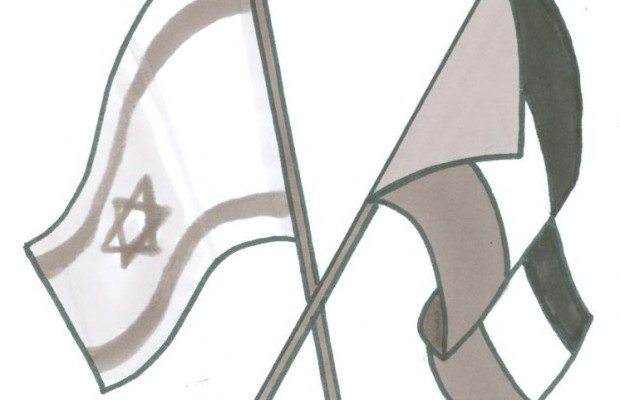The Controversy Continues: 60 year conflict leaves its mark on students halfway across the world

For many, the Israeli-Palestinian conflict is a distant battle is just another Middle Eastern struggle that has no impact on them except for the occasional tweet or Facebook status. However, for some students, the conflict is very real.
Both grandmothers and aunts of Fatima Salah, sophomore, live in the West Bank. Salah plans on visiting her family in Jerusalem next summer, despite the situation that occurred this summer in Gaza.
In June, Israel blamed Hamas for the kidnapping of three teenaged Israeli settlers. After the bodies of the youths were found, a Palestinian teenager was abducted and killed. To prevent further revenge, Israel launched Operation Protective Edge, a 50 day war, on July 8. On July 17, Israel also launched a ground invasion of Gaza, aiming to stop the firing of rockets and destroy tunnels used by Hamas. Several cease fires did not hold, and the civilian population bore the brunt of the invasion. When the fighting ended on August 26 in a cease fire, 2,100 Palestinians had been killed and 67 Israelis – 64 soldiers – had been killed. According to CNN, the United Nations estimated that close to 70% of the Palestinians killed were civilians.
For Salah, though, the issue is not just about Operation Protective Edge or a political battle. “People need to realize that there are children getting slaughtered, kids under the age of 12,” she said. According to BBC, 495 Palestinian children and one Israeli child have died in Operation Protective Edge this summer.
For senior Jason Krastein, “It’s more of an Israel vs Hamas issue. Americans don’t know what’s going on at all.”
“A lot of people in the Middle East, except for Israel, are anti-semitists. If it wasn’t for Hamas starting it [the war], Israel wouldn’t do anything,” adds Karina Krastein, junior.
Salah, however, disagrees.
“You can’t discriminate against religion,” Salah said. “There are many Jews for a Free Palestine. One (Free) Palestine protest I went to was organized by a Jewish guy.”
While Salah is thankful that most of her family lives in the West Bank, safe from the rockets in Gaza, she added that her mother’s aunt is still in Gaza. “She was from the West Bank and got married before the wall went up around Gaza. We haven’t heard from her yet,” Salah said. In addition, her family went to several funerals here for friends whose relatives died in Gaza this summer.
Karina has relatives on her mother’s side living in Israel and said that they were affected by the situation this summer. “I back Israel one hundred percent because that is my home,” said Karina.
Even though Salah is of Palestinian descent, she believes that people shouldn’t just form an uneducated opinion, adding that she extensively researched both sides before forming her own opinion.
“Don’t just go to your friends (for information),” Salah said. “Do your own research, be open minded, get your facts first.”
